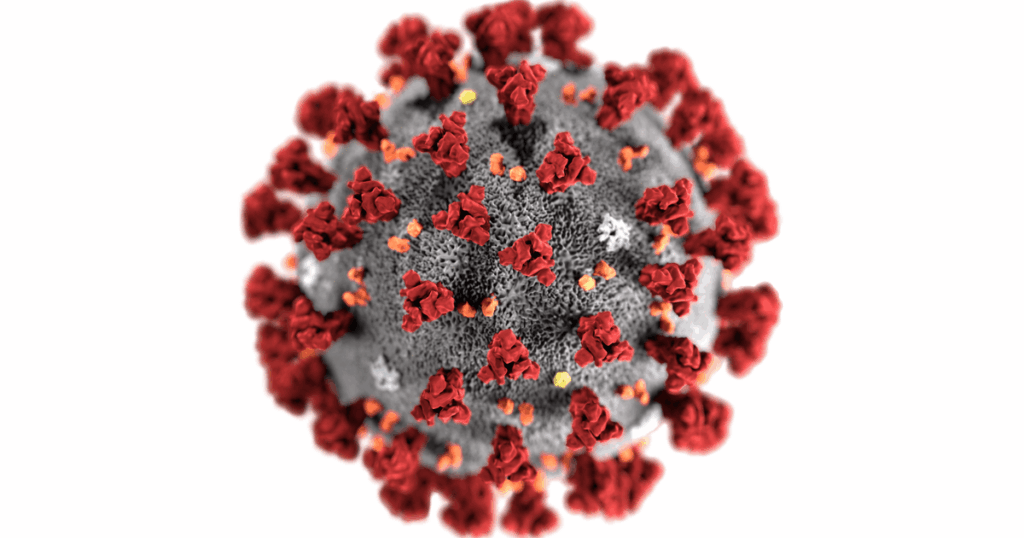
What exactly is Covid-19? From the World Health Organization (WHO), “Coronaviruses (CoV) are a large family of viruses that cause illness ranging from the common cold to more severe diseases such as Middle East Respiratory Syndrome (MERS-CoV) and Severe Acute Respiratory Syndrome (SARS-CoV).
Coronavirus disease (COVID-19) is a new strain that was discovered in 2019 and has not been previously identified in humans.
Coronaviruses are zoonotic, meaning they are transmitted between animals and people. Detailed investigations found that SARS-CoV was transmitted from civet cats to humans and MERS-CoV from dromedary camels to humans. Several known coronaviruses are circulating in animals that have not yet infected humans.
Common signs of infection include respiratory symptoms, fever, cough, shortness of breath and breathing difficulties. In more severe cases, infection can cause pneumonia, severe acute respiratory syndrome, kidney failure and even death. “
Covid-19 originated in Wuhan, China and spread rapidly from there. Here’s a comprehensive list of countries affected.
Countries, areas or territories with cases
China :81174 cases
Italy :35713 cases
Iran (Islamic Republic of) :17361 cases
Spain :13716 cases
Republic of Korea :8413 cases
Germany :8198 cases
France :7652 cases
United States of America :7087 cases
Switzerland :3003 cases
The United Kingdom :2626 cases
Netherlands :2051 cases
Austria :1646 cases
Belgium :1486 cases
Norway :1423 cases
Sweden :1279 cases
Denmark :1044 cases
Japan :873 cases
International conveyance (Diamond Princess) :712 cases
Malaysia :673 cases
Portugal :642 cases
Canada :569 cases
Australia :510 cases
Czechia :464 cases
Qatar :442 cases
Greece :387 cases
Finland :359 cases
Singapore :313 cases
Israel :304 cases
Ireland :292 cases
Brazil :291 cases
Slovenia :275 cases
Estonia :258 cases
Iceland :250 cases
Poland :246 cases
Romania :246 cases
Bahrain :242 cases
Pakistan :241 cases
Saudi Arabia :238 cases
Indonesia :227 cases
Thailand :212 cases
Luxembourg :203 cases
Chile :201 cases
Egypt :196 cases
Philippines :187 cases
Ecuador :155 cases
Iraq :154 cases
India :151 cases
Russian Federation :147 cases
Kuwait :142 cases
Lebanon :133 cases
Peru :117 cases
United Arab Emirates :113 cases
San Marino :109 cases
Slovakia :105 cases
Turkey :98 cases
Serbia :96 cases
Mexico :93 cases
Bulgaria :92 cases
Panama :86 cases
South Africa :85 cases
Armenia :84 cases
Croatia :81 cases
Argentina :79 cases
Algeria :72 cases
Latvia :71 cases
Viet Nam :66 cases
Colombia :65 cases
Albania :59 cases
Cyprus :58 cases
Faroe Islands :58 cases
Hungary :58 cases
Brunei Darussalam :56 cases
Costa Rica :50 cases
Morocco :49 cases
Jordan :48 cases
Malta :48 cases
Belarus :46 cases
occupied Palestinian territory :44 cases
Sri Lanka :42 cases
Andorra :39 cases
Georgia :38 cases
Kazakhstan :36 cases
North Macedonia :36 cases
Venezuela (Bolivarian Republic of) :36 cases
Cambodia :35 cases
Azerbaijan :34 cases
Oman :33 cases
Senegal :31 cases
Republic of Moldova :30 cases
Tunisia :29 cases
Uruguay :29 cases
Guadeloupe :27 cases
Bosnia and Herzegovina :26 cases
Lithuania :26 cases
Liechtenstein :25 cases
Afghanistan :22 cases
Dominican Republic :21 cases
Burkina Faso :20 cases
New Zealand :20 cases
Martinique :19 cases
Ukraine :16 cases
Uzbekistan :16 cases
Maldives :13 cases
Bolivia (Plurinational State of) :12 cases
Jamaica :12 cases
Réunion :12 cases
French Guiana :11 cases
Paraguay :11 cases
Bangladesh :10 cases
Cameroon :10 cases
Honduras :9 cases
Monaco :9 cases
Gibraltar :8 cases
Nigeria :8 cases
Rwanda :8 cases
Cuba :7 cases
Democratic Republic of the Congo :7 cases
Ghana :7 cases
Trinidad and Tobago :7 cases
Ethiopia :6 cases
Seychelles :6 cases
Guatemala :6 cases
Côte d’Ivoire :6 cases
Jersey :5 cases
Mongolia :5 cases
Guam :5 cases
Guyana :4 cases
Kenya :4 cases
Aruba :4 cases
Curacao :3 cases
Equatorial Guinea :3 cases
French Polynesia :3 cases
Gabon :3 cases
Mayotte :3 cases
Puerto Rico :3 cases
Saint Barthelemy :3 cases
United Republic of Tanzania :3 cases
Kyrgyzstan :3 cases
Namibia :2 cases
Saint Martin :2 cases
Saint Lucia :2 cases
United States Virgin Islands :2 cases
Liberia :2 cases
Zambia :2 cases
Montenegro :2 cases
Barbados :2 cases
Antigua and Barbuda :1 cases
Bhutan :1 cases
Cayman Islands :1 cases
Central African Republic :1 cases
Congo :1 cases
Eswatini :1 cases
Guernsey :1 cases
Guinea :1 cases
Holy See :1 cases
Mauritania :1 cases
Nepal :1 cases
Saint Vincent and the Grenadines :1 cases
Sudan :1 cases
Togo :1 cases
Suriname :1 cases
Somalia :1 cases
Benin :1 cases
Bahamas :1 cases
Gambia :1 cases
On my Homefront
I just talked with my sister while she was at Costco shopping for dog and cat food, and she said those items were also in short supply. Of course toilet paper was nowhere in sight. I’m down to two rolls, so I think I might have to explore other options.
What makes Covid-19 so dangerous?
What makes Covid-19 so dangerous is that it’s highly contagious, plus there is no vaccine against it. We have all lived with different strains of the flu, yet it continues to kill thousands every year. Fortunately, we have the option of getting a flu shot to combat that, so while thousands die, we don’t see stores shutting down, sports venues being cancelled, and restaurants being forced by the government to shut their doors. We don’t see borders being closed and warnings to avoid large crowds. We’ve lived with the flu for years without global panic.
There is no vaccine for Covid-19
With Covid-19, we don’t have the option of a vaccine, so the entire world is in a panic, and rightfully so. I myself am in a high-risk category, so I need to be extra careful in my interactions with other people. Fortunately, dogs and cats can’t contract Covid-19 so I’m safe on that front.
Social distancing
The simplest way to combat the spread of this virus is social distancing, and that simply means to avoid close contact with others, preferably at distances of 3 feet or greater.
Why social distancing? Covid-19 can be transmitted through the air we breathe, so the farther we distance ourselves from potential carriers of this virus, the better our chances of falling ill. There is an incubation period where those who have contracted the virus feel fine, yet can transmit that to others, including their wives and husbands, children, older family members and fellow workers or associates.
Other precautions
We’ve also been cautioned not to touch our faces, as that increases the odds of infection. Digging deeper, that also means everything we touch; dollar bills, railings, tabletops and so on deserves our attention.
In restaurants, we first saw salt and pepper shakers disappear, being replaced by packets. We then saw extreme efforts to disinfect everything their patrons might touch – every 15 to 30 minutes. Even that wasn’t enough in most communities as local governments initiated bans on dining in, forcing restaurants to survive on deliveries.
Large crowds
At first, the word was to avoid large crowds of over 500, and then that was reduced to 50 or more. Now, we’re being advised to hunker down at home and work remotely for up to 8 weeks. For thousands of displaced workers, that isn’t possible which is going to result in untold bankruptcies and businesses shutting their doors.
Travel bans
In the USA, travel from China was initially banned, but that quickly expanded to Europe and now the UK. Even Canada closed their border. It seems the large majority of those infected in the USA are those who have travelled abroad, or on cruise ships. Airlines are not immune either.
We’re in the midst of a full on pandemic
While the risk of inhaling this virus is diminished by social distancing, even those who remain completely isolated are at some risk via shared objects.
How it spreads
- It is believed to spread primarily from person-to-person.
- Between people who are in close contact with one another (within 3 to 6 feet).
- Through respiratory droplets produced when an infected person sneezes or coughs.
- Those droplets can find their way into the mouths or noses of people who are nearby, possibly by being inhaled into the lungs.
- Those droplets can also land on surfaces, then be touched and carried to the face.
How to protect yourself
Of course you want to wash your hands or use a hand sanitizer
- Wash your hands often with soap and water at minimum for twenty seconds, especially after you’ve been in a public place, or after blowing your nose, sneezing or coughing.
- If soap and water are not readily available, use a hand sanitizer that contains at least sixty percent alcohol. Clean all of the surfaces of your hands and rub them together until they feel dry.
- Avoid touching your eyes, nose, and mouth with unwashed hands.
Schools are closing their doors
Even as major school districts around the USA are shutting their doors, at least until April, a union in Hawaii initially demanded that the University of Hawaii remain open pending labor negotiations. The university’s 10 campuses will begin online courses on March 23, the first day after spring break, as a precaution against the spread of coronavirus. The administration hopes to resume in-person classes on April 13.
In St. Louis, Washington University has already switched to online studies. The spring 2020 semester came to a sudden halt, and places that typically saw foot traffic, such as Brookings Quadrangle, lay silent due to the global pandemic caused by COVID-19. The most heartbreaking decision was the March 16 announcement of the cancellation of the 159th Commencement ceremony, which was scheduled for May 15th.
What can you do in your workplace?
Certainly, social distancing means reducing interactions between people and the distance to which they are forced to interact. Work remotely when possible and hold virtual meetings rather than face-to-face.
For senior living facilities and adult assisted living facilities, restricting access will minimize the spread of this virus.
Social functions should be postponed, and lunch breaks should be staggered so that fewer people are gathered at one time.
Be Safe ………
BROUGHT TO YOU BY PROLIMEHOST
We’ve been in the web hosting industry for over a decade, helping hundreds of clients succeed in what they do best and that’s running their business. We specialize in Virtual Private Servers (VPS) and dedicated servers, with data centers in Los Angeles, Denver & Singapore.
VPS SERVICES: LIGHTNING FAST SSD VIRTUAL SERVERS
Our Virtual Private Servers all feature high performance Xeon processors and SSD storage in a RAID10 configuration to optimize your server’s performance, which dramatically enhances visitor experiences on your site.
That speed is backed by unparalleled 24/7 support, featuring both outstanding response AND resolution times to maximize your uptime.
Now is the time to join the ProlimeHost virtual private server revolution.
DEDICATED SERVERS: BACKED BY A 99.9% SLA NETWORK UPTIME GUARANTEE
We only use enterprise-class hardware in our dedicated servers [1] and offer a four (4) hour hardware replacement. Throw in IPMI for remote management, support for public and private networks, free operating system (OS) re-installs, and SATA, SAS & SSD (including NVMe) storage. Call 1-877-477-9454 or contact us [2]. For everything from gaming servers to cheap dedicated servers, we’re here to help.




